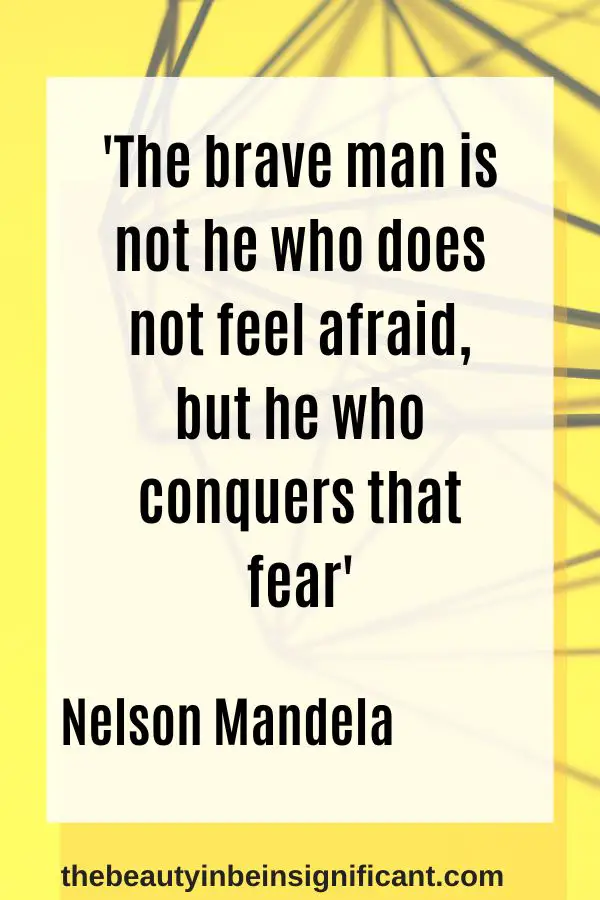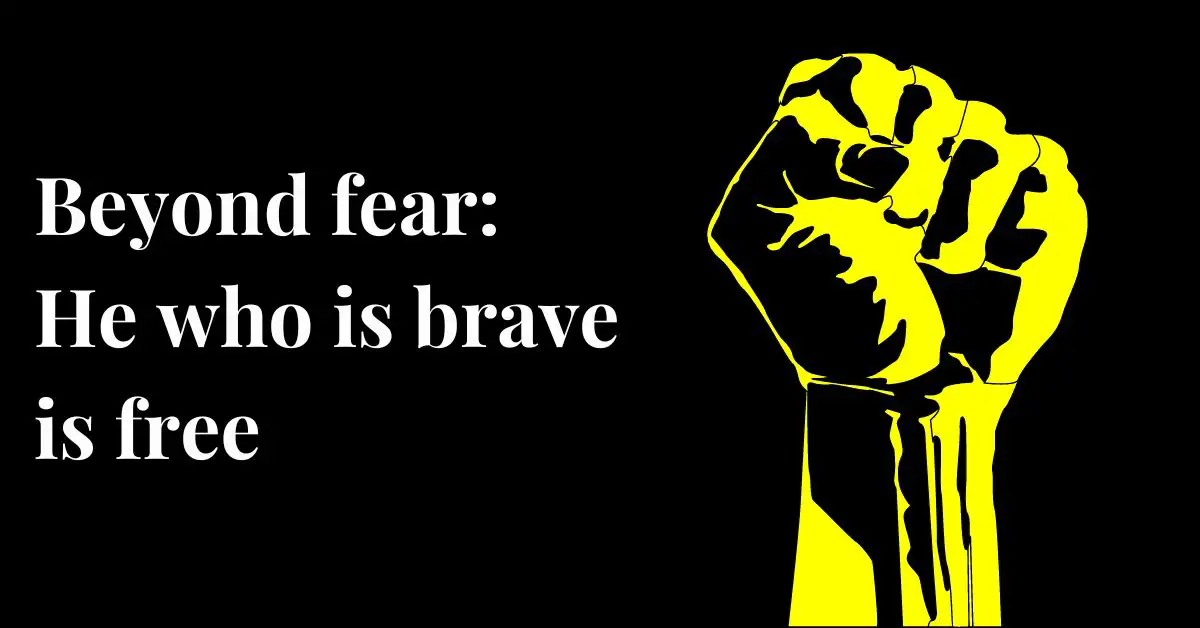“He who is brave is free.” This simple quote by Stoic Philosopher Seneca packs a powerful punch. It encapsulates the idea that true freedom and empowerment come from facing our fears and standing up for what we believe in.
In this blog post, we will explore the meaning of the quote and examine how bravery leads to freedom and empowerment, both in personal and in social contexts. We will discuss different forms of bravery, including physical courage, moral courage, and emotional courage. We will also explore how we can all strive to be braver in our own lives.
Table of Contents
What does being ‘brave’ mean?
Bravery is not just a physical act, but a state of mind and a way of being.
There are several types of bravery including:
Moral bravery
Standing up for our beliefs and principles, even when it’s difficult or unpopular.
Emotional bravery
Confronting our own emotions and vulnerabilities, and to be open and honest with others about our feelings.
Intellectual bravery
This is the ability to question one’s own beliefs, to entertain new and different ideas, and to think for oneself.
How does bravery lead to freedom?
When we are brave, we are able to confront and overcome the fears and doubts that hold us back. We are able to break free from limiting beliefs and push past the boundaries that we have set for ourselves. By doing this, we are able to gain a sense of control over our lives, which leads to a greater sense of freedom and personal power.

Bravery allows us to take control of our own lives and to define ourselves on our own terms. When we are brave, we are able to speak up for ourselves, to make our own choices, and to pursue our own goals. This sense of self-direction leads to a greater sense of self-worth and self-esteem, and a feeling of being in control of our own lives.
In addition, bravery is not just about individual empowerment but also about promoting social change and progress. When individuals are brave enough to stand up for what they believe in and to challenge the status quo, they have the power to bring about meaningful change. From civil rights activists to environmental advocates, brave individuals have made significant contributions to society and played key roles in shaping the world we live in.
Conclusion
In conclusion, the phrase “he who is brave is free” reminds us that true freedom and empowerment come from standing up for what we believe in. Bravery comes in many forms, including physical courage, moral courage, emotional courage and intellectual courage. It allows us to overcome our personal fears and limitations, and gain a sense of personal empowerment and self-direction. It also leads to social change and progress, making the world a better place for ourselves and future generations.
As we strive to be braver in our own lives, we should remember that bravery is not about being fearless, but rather about facing our fears and standing up for what is right. By being brave, we can break free from the bonds that hold us back and claim our freedom.

